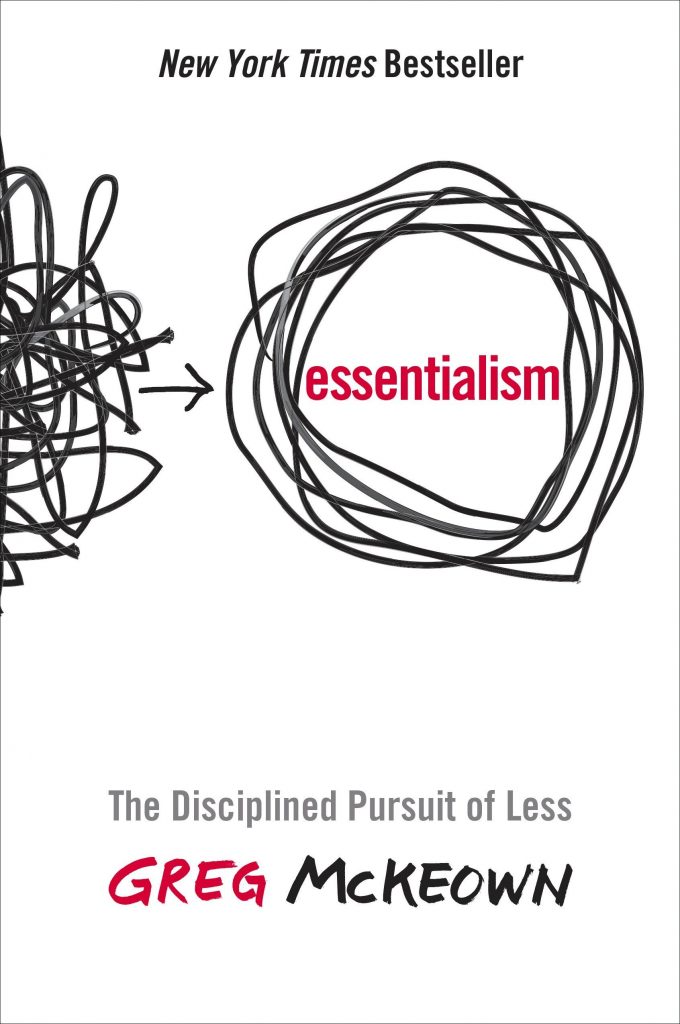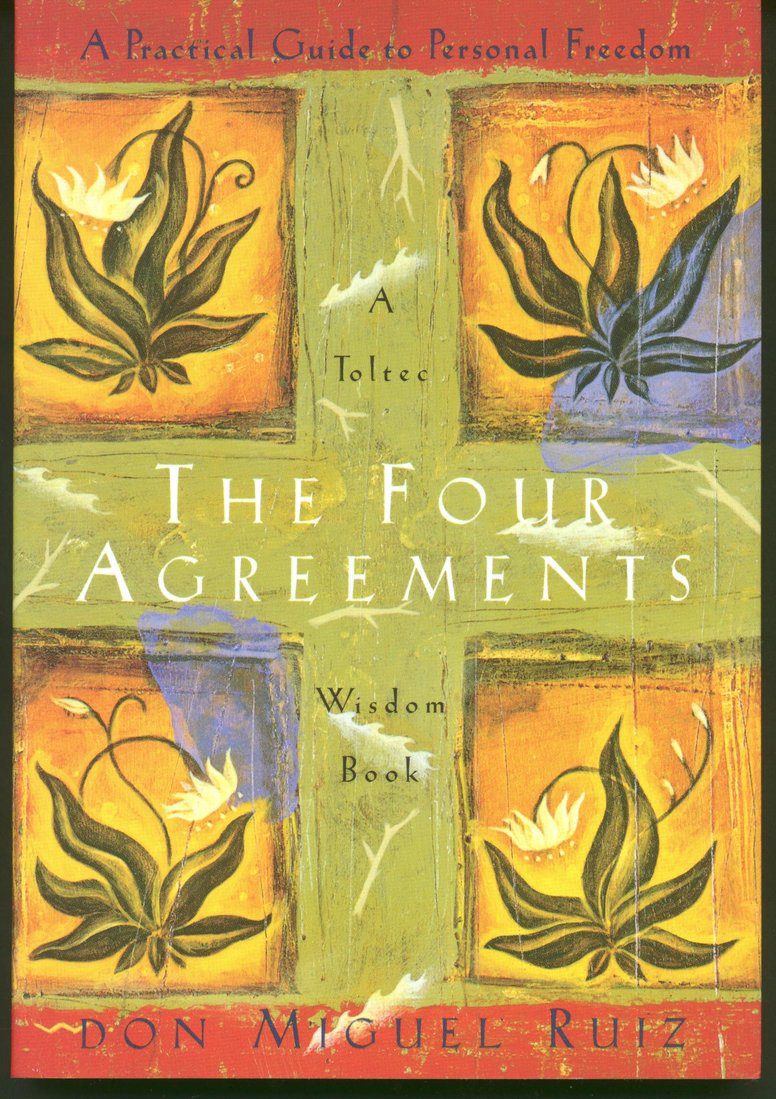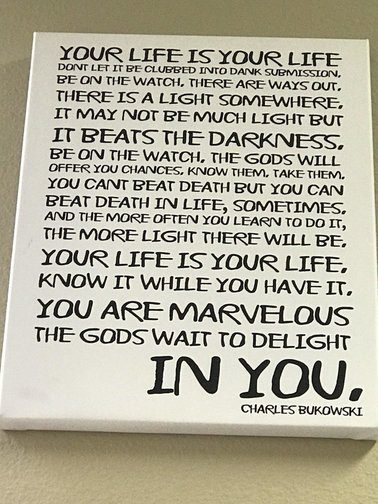If you don’t prioritize your life, someone else will.
THE WISDOM OF LIFE CONSISTS IN THE ELIMINATION OF NON-ESSENTIALS. —Lin Yutang
Print | Kindle (eBook) | Audiobook
Essentialism by Greg McKeown is a very great book about living by design, not by default. The book goes in depth on how to relentlessly pursue less and concentrate on what really matters. As an Essentialist, you need to focus on the few things that are really essential, think of the trade-offs, say no more often and EXECUTE.
Here are my favourite take aways from reading – Essentialism: The Disciplined Pursuit of Less:
The way of the Essentialist is the relentless pursuit of less but better. It doesn’t mean occasionally giving a nod to the principle. It means pursuing it in a disciplined way. The way of the Essentialist isn’t about setting New Year’s resolutions to say “no” more, or about pruning your in-box, or about mastering some new strategy in time management. It is about pausing constantly to ask, “Am I investing in the right activities?“
Am I investing in the right activities?
Essentialism is not about how to get more things done; it’s about how to get the right things done. It doesn’t mean just doing less for the sake of less either. It is about making the wisest possible investment of your time and energy in order to operate at our highest point of contribution by doing only what is essential.
The way of the Essentialist means living by design, not by default. Instead of making choices reactively, the Essentialist deliberately distinguishes the vital few from the trivial many, eliminates the nonessentials, and then removes obstacles so the essential things have clear, smooth passage. In other words, Essentialism is a disciplined, systematic approach for determining where our highest point of contribution lies, then making execution of those things almost effortless.
The Paradox of Success
- PHASE 1: When we really have clarity of purpose, it enables us to succeed at our endeavor.
- PHASE 2: When we have success, we gain a reputation as a “go to” person. We become “good old [insert name],” who is always there when you need him, and we are presented with increased options and opportunities.
- PHASE 3: When we have increased options and opportunities, which is actually code for demands upon our time and energies, it leads to diffused efforts. We get spread thinner and thinner.
- PHASE 4: We become distracted from what would otherwise be our highest level of contribution. The effect of our success has been to undermine the very clarity that led to our success in the first place.”
Tell me, what is it you plan to do / with your one wild and precious life? – Poet Mary Oliver
The overwhelming reality is: we live in a world where almost everything is worthless and a very few things are exceptionally valuable.
You cannot overestimate the unimportance of practically everything. -John Maxwell
The Essence of Essentialism
- There are three deeply entrenched assumptions we must conquer to live the way of the Essentialist: “I have to,” “It’s all important,” and “I can do both.” Like mythological sirens, these assumptions are as dangerous as they are seductive. They draw us in and drown us in shallow waters.
- To embrace the essence of Essentialism requires we replace these false assumptions with three core truths: “I choose to,” “Only a few things really matter,” and “I can do anything but not everything.” These simple truths awaken us from our nonessential stupor. They free us to pursue what really matters. They enable us to live at our highest level of contribution.
There are three deeply entrenched assumptions we must conquer to live the way of the Essentialist: “I have to,” “It’s all important,” and “I can do both.
To embrace the essence of Essentialism requires we replace these false assumptions with three core truths: “I choose to,” “Only a few things really matter,” and “I can do anything but not everything.
Trade Offs
- You have to look at every opportunity and say, ‘Well, no … I’m sorry. We’re not going to do a thousand different things that really won’t contribute much to the end result we are trying to achieve.
- When faced with the choice between two things we want, the preferred answer is yes to both. But as much as we’d like to, we simply cannot have it all.
- An Essentialist makes trade-offs deliberately. She acts for herself rather than waiting to be acted upon.
There are no solutions. There are only trade-offs. – Economist Thomas Sowell
- As painful as they can sometimes be, trade-offs represent a significant opportunity. By forcing us to weigh both options and strategically select the best one for us, we significantly increase our chance of achieving the outcome we want.
- Essentialists see trade-offs as an inherent part of life, not as an inherently negative part of life. Instead of asking, “What do I have to give up?” they ask, “What do I want to go big on?” The cumulative impact of this small change in thinking can be profound.
WHERE IS THE KNOWLEDGE WE HAVE LOST IN INFORMATION? —T. S. Eliot
Learning to say No – The “No” Repertoire
Essentialists don’t say no just occasionally. It is a part of their regular repertoire. To consistently say no with grace, then, it helps to have a variety of responses to call upon.
1. The awkward pause
Instead of being controlled by the threat of an awkward silence, own it. Use it as a tool. When a request comes to you, just pause for a moment. Count to three before delivering your verdict. Or if you get a bit more bold, simply wait for the other person to fill the void.
2. The soft “no” (or the “no but”)
I am consumed with doing {activity} but I would love to get together once am done.
3. Let me check my calendar and get back to you.
It gives you the time to pause and reflect and ultimately reply that you are regretfully unavailable.
4. Use e-mail bouncebacks.
People eventually adapt especially when your intentions for your temporary absence is clear.
5. Say, Yes. What should I deprioritize?
One effective way to do that is to remind your superiors what you would be neglecting if you said yes and force them to grapple with the trade-off.
6. Say it with humor.
7. Use the words “You are welcome to X. I am willing to Y.”
You are welcome to borrow my car. I am willing to make sure the keys are here for you
8. I can’t do it, but X might be interested.
I am sorry I can not come to your event but I can refer another speaker.
HALF OF THE TROUBLES OF THIS LIFE CAN BE TRACED TO SAYING YES TOO QUICKLY AND NOT SAYING NO SOON ENOUGH—Josh Billings
Setting Boundaries
- The Essentialists see boundaries as empowering. They recognize that boundaries protect their time from being hijacked and often free them from the burden of having to say no to things that further others’ objectives instead of their own.
- They know that clear boundaries allow them to proactively eliminate the demands and encumbrances from others that distract them from the true essentials.
Sunk-Cost Bias
Sunk-cost bias is the tendency to continue to invest time, money, or energy into something we know is a losing proposition simply because we have already incurred, or sunk, a cost that cannot be recouped. But of course this can easily become a vicious cycle: the more we invest, the more determined we become to see it through and see our investment pay off. The more we invest in something, the harder it is to let go.
Boundaries are a little like the walls of a sandcastle. The second we let one fall over, the rest of them come crashing down.
The Endowment Effect
- Our tendency to undervalue things that aren’t ours and to overvalue things because we already own them.
Status Quo Bias
- The tendency to continue doing something simply because we have always done .
TO ATTAIN KNOWLEDGE ADD THINGS EVERY DAY. TO ATTAIN WISDOM SUBTRACT THINGS EVERY DAY.
—Lao-tzu
Zero-Based Budgeting
- Apply zero-based budgeting to your own endeavors. Instead of trying to budget your time on the basis of existing commitments, assume that all bets are off. All previous commitments are gone. Then begin from scratch, asking which you would add today.
- You can do this with everything from the financial obligations you have to projects you are committed to, even relationships you are in. Every use of time, energy, or resources has to justify itself anew. If it no longer fits, eliminate it altogether.
All the best in your quest to get better. Don’t Settle: Live with Passion.



4 Comments
Pingback: 100 Books Reading Challenge 2020 – Lanre Dahunsi
Pingback: The Top 12 Books on Productivity. – Lanre Dahunsi
Pingback: Setting Healthy Boundaries. – Lanre Dahunsi
Pingback: Book Summary – Effortless: Make It Easier to Do What Matters Most by Greg McKeown. – Lanre Dahunsi